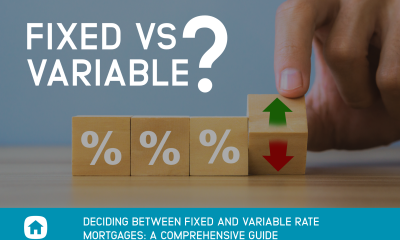(Special) – Move out or move up! That’s the reality facing Canadian millennials as they go about searching for and securing suitable housing in many of the country’s larger urban centres.
A new survey by TD bank shows that 81 per cent of Canadian millennials aspire to own their home but financial realities, including the rising cost of home prices across the country, means many are expanding their search to the suburbs in their quest for an affordable property, even if they are already in the market.
The survey found that although a third of millennials would prefer to live in the city, 64 per cent are willing to consider going to a suburban location in order to own a home that meets their existing or future goals.
“The goal is still alive and well but now the main theme when it comes to home ownership is affordability,” Pat Giles, vice president of real estate secured lending at TD, said in an interview. “Whereas the goal just a few years ago used to be to live in the city, two-thirds of millennials now have shifted their focus to the suburbs.”
The three main factors influencing millennials’ home-buying decisions are affordability (78 per cent), home size (60 per cent) and neighbourhood (59 per cent). More specifically, 64 per cent said affordability, 63 per cent said increased outdoor space and 62 per cent cited larger living areas as the key factors in their decision to move into the suburbs.
The survey found that millennials are willing to make some lifestyle sacrifices to get into the housing market such as eating out less, shopping less frequently and reducing their entertainment spending, drawing the line at an extended commute, with only 27 per cent saying they are willing to spend more time travelling to and from work. Forty-five per cent rank their desire to live close to work as an important factor in their house purchasing decision.
Giles says the decision on where to buy all comes down to budget and lifestyle choices. It’s crucial to understand what you can afford before you head out looking for a home. This will include lifestyle and financial obligations that will affect the size of mortgage that you can take on and comfortably afford should interest rates rise in the future.
As well, home buyers should be aware of the difference between being pre-qualified and pre-approved for a mortgage. The two are not the same.
Pre-qualification gives you a general idea of how much mortgage you might be approved for while pre-approval gives you a much clearer and more detailed account of exactly how much you can pay and how much house you can afford.
“You need a full view of what you can afford before you dive in,” Giles says. “Make sure you avoid the pre-qualification pitfall. You want pre-approval. It gives you the confidence that you can shop for the right home at the right price and also lets sellers know you’re serious when you make an offer.”
Beyond monthly mortgage payments, it’s important to understand all up-front costs over your down payment such as property assessments and surveys, home inspection fees, land transfer taxes, notary, legal and title insurance fees, property tax and utility adjustments and moving costs.
Then there are ongoing costs of maintaining a home beyond the day you close the purchase, especially if you’re upsizing or moving from a condominium to a house, such as property taxes and everyday maintenance and repairs.
From changing mortgage rates to the B20 stress test introduced last year, a lot has changed in the Canadian housing market in recent years.
Giles says many millennials don’t even know about the new stress tests rules which make talking to a financial adviser or mortgage specialist even more important because they can help you understand what’s new in the market so you can make an informed and confident home-buying decision.
Talbot Boggs is a Toronto-based business communications professional who has worked with national news organizations, magazines and corporations in the finance, retail, manufacturing and other industrial sectors.
Copyright 2019 Talbot Boggs
Talbot Boggs , The Canadian Press

 Buying a Home5 years ago
Buying a Home5 years ago
 Credit6 years ago
Credit6 years ago
 Business4 years ago
Business4 years ago
 5 Mortgage Secrets7 years ago
5 Mortgage Secrets7 years ago
 Buying a Home6 years ago
Buying a Home6 years ago
 5 Mortgage Secrets6 years ago
5 Mortgage Secrets6 years ago
 News12 months ago
News12 months ago
 Business4 years ago
Business4 years ago




